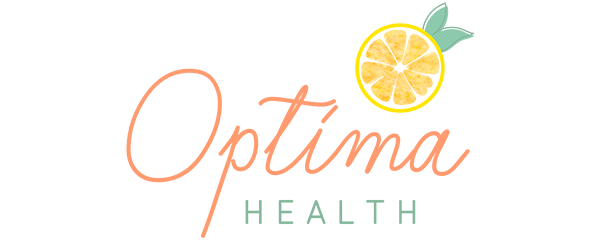You may or may not have noticed the ever growing collagen related product market surrounding us? You may have heard of the word, but don’t really know what it means? You may be looking into a collagen supplement, but are not too sure where to begin? This post has got you covered.
Collagen is a naturally occurring fibrous protein found in many parts of the body, such as:
- Bone
- Skin
- Teeth
- Cartilage
- Tendons
- Hair
- Nails
- Blood vessels
Its primary role is structural integrity, that is, it helps ‘hold’ the body together and keep it strong. Being a protein, it is chock full of many different amino acids that provide a host of health benefits for the body. Glycine, an ‘essential’ amino acid, is the amino acid present in the largest amounts in collagen making up around 1/3 of the molecule. Other amino acids present include proline, arginine, glutamine and many more.
Interesting to note, collagen is the most predominant protein in our body, representing at minimum around 30% of total body protein. Also, collagen is the same regardless of the source. In other words, marine collagen is going to deliver you the same benefits as bovine collagen.
There are around 20 types of collagen found within the body, but types I, II and III make up around 80-90% of the collagen within the body. Without getting totally into the nitty gritty, Types I and III are traditionally essential to maintenance and function of the hair, skin, nails, bones and muscles. These types are formed in the fibroplasts (cells within connective tissues) and osteoblasts (cells that work to form new bones). Type II is best known for its joint and cartilage support and is produced by the the chondrocytes (cells that produce and maintain the cartilage matrix) in cartilage.
How does the body make collagen?
The body is smart in that it can produce its own collagen through various processes with help from key vitamins and minerals.
However as we age, collagen production begins to slowly decline, leading to lax ligaments, skin thinning, joint pain, wrinkles, weakened nails, brittle hair and digestive issues. The glycine in collagen plays an important role in strengthening the integrity of the intestinal wall and mucosa, hence why digestion may be compromised as collagen production declines.
Ageing is not the only reason for reduced production of collagen, dietary inadequacy or high sugar diets can too play a role as they do not provide the essential vitamins and minerals required to collagen production.
Also to note, smoking or excessive sun exposure, can catabolise collagen in the body.

Is it different to gelatin?
Short answer, no not really.
Gelatin and collagen are basically the same thing – they share the same amino acid profile and are extracted from the same source. The difference is that gelatin is basically the ‘processed’ or cooked form of collagen. It is sometimes referred to as ‘hydrolysed collagen’.
Bone broth is a fantastic way to highlight this. Bones are a great source of collagen. As they simmer in a pot to make bone broth, a process that can take up to several days, the collagen within the bones slowly breaks down to form gelatin which has more of a gel-like consistency.
Collagen has a triple-helix structure, that is, three strands which are wound together to create one strong protein. In other words, it is a giant molecule that needs to be broken down for efficient use. The triple-helical structure of collagen arises from three amino acids – glycine, proline and ‘X’ – which make up a repeating motif of Gly-Pro-X, where ‘X’ represents any other amino acid residue. Sometimes this can read Gly-Pro-Hyp, where ‘Hyp’ represents hydroxyproline, which accounts for around 14% of the protein and is an important marker for bone turnover and liver fibrosis. This sequence is found in all types of collagen.
Collagen peptides or hydrolysed collagen are the product of collagen breakdown and they have very similar benefits to gelatin, but behave differently as a food. The main difference is that collagen peptides, during processing, are hydrolysed to a lower molecular weight, allowing them to be dissolvable in either cold or warm water. Some sources also state that they may be slightly easier to digest than gelatin, which is only dissolvable in hot water. Gelatin works to coat the lining of the gastrointestinal tract, helping to draw water to the gut, thereby reducing inflammation, increasing motility and healing the intestinal lining. Therefore, it has a slower absorption time and contributes to a feeling of satiety. Furthermore, gelatin has a bioavailability of 70-73% whereas collagen hydrolysate is absorbed much faster and is over 90% bioavailable. This is because the smaller peptides mean that the product is non-gelling (unlike ‘gel’atin) and therefore, the body can absorb it within a shorter period of time when compared to gelatin.
Which nutrients are important in collagen production?
Vitamin C is essential in the collagen production process due its role in the important hydroxylation reactions that take place to change the collagen molecule to one that is triple-helix in structure and configuration. In other words, it helps to form the fibrous components of the protein. Some food sources of vitamin C include: capsicum, citrus, cabbage, berries, melons, dark leafy greens and kiwi fruit.
Iron plays a role as an important cofactor during these hydroxylation reactions. Vitamin C protects iron from oxidation, allowing iron to perform its role in the process. Some food sources of iron include: meat, dried apricots, amaranth, lentils, quinoa, spinach, prune juice, chia seeds, brown rice and cashews.
Zinc is another nutrient to note due to its role in the function of collagenase, the enzyme which digests collagen in the gut. Zinc is an abundant mineral found in animal products but can also be sourced from legumes, nuts/seeds and wholegrains.
Adequate protein consumption is necessary for efficient collagen formation as after all, collagen is protein. Plus, it is formed from amino acids, of which are sourced from protein consumption as well as being synthesised by the body.
Do you need to take collagen?
Like in many cases, more research needs to be undertaken to see whether collagen supplements provide benefit as much of the feedback currently is based on subjective opinion.
A focus on sustainable health change is key to longevity. Hence, while collagen powder and the like have their place, they are not accessible to all and are expensive to maintain in the long run. Supporting health through more practical and controllable variables are often a better route for many.
The collagen within your body is doing amazing things, the key is to feed it with quality food and nutrients that keep this process in tip top shape. Hence, in many cases it is best focusing on consuming a healthy, balanced diet full of foods naturally rich in the amino acids used to help build collagen – oily fish, chicken, red meat, legumes, nuts/seeds, fresh produce etc. Furthermore, protein needs (aka amino acids again) also increase as we age, so if you aren’t hitting targets in that area, by increasing your consumption, you will also reap the benefits that come with it, of which are similar to collagen.
Collagen is traditionally an animal sourced product, therefore, if you come from an vegan/vegetarian/plant-based standpoint, plant based protein powders provide a boost of amino acids should you need.
Focusing on reducing sunburn, smoking and alcohol consumption can also help reduce the rate of collagen decline.
Have something to say?
Comment below and feel free to share on all your platforms. As always, I would love to know your biggest takeaway and tell me if you’ve tried collagen before – Tag us on Instagram @optima_health or #optimahealth. Thanks for reading x
